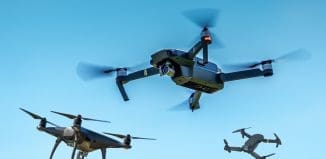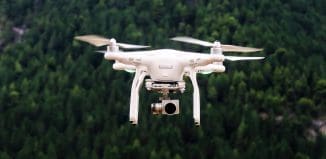Watch: Startup Uses Drones To Deliver Medicine In Rwanda
This post is also available in:  עברית (Hebrew)
עברית (Hebrew)
A Silicon Valley startup is using drones to deliver medicine and blood to patients in Rwanda, and it plans to expand to other countries by the end of the year. The company, Zipline International, announced recently that it will begin flying its drones in Rwanda in July, under a partnership with the government. The unpiloted autonomous vehicles will transport supplies to hospitals and health centers across the tiny East African nation.
Deaths from HIV, tuberculosis, and malaria have plummeted over the past decade, as the government invested heavily in its healthcare system, but delivering drugs and medical supplies still poses major problems.
Rwanda, one of the world’s poorest nations, was ranked 170th by gross domestic product in 2014 by the International Monetary Fund. And so it is striking that the country will be the first, company executives said, to establish a commercial drone delivery network.
That Rwanda is set to become the first country with a drone delivery network illustrates the often uneven nature of the adoption of new technology. In the United States, drones have run into a wall of regulation and conflicting rules. But in Rwanda, the country’s master development plan has placed a priority on the use of the machines, first for medicine and then more broadly for economic development.
With Zipline’s system, hospitals will be able to order blood or medicine via text message, and have it delivered within minutes by one of the company’s custom-built drones, called “Zips.” Each electric-powered Zip weighs about 10 kg, can carry around 1.5 kg of medicine, and can travel for more than 120 km on a single battery charge. The planes use GPS and Rwanda’s cellular network to navigate, and deliver blood or medicine in cardboard boxes that are dropped with a parachute from low altitudes. The company says its network can deliver packages within 30 minutes, eliminating the need for onboard insulation or refrigeration, and the Zips are durable enough to withstand rain and wind.
Zipline’s initial fleet of 15 drones will service about half of the country, before expanding to the rest of Rwanda by early next year.




























